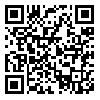BibTeX | RIS | EndNote | Medlars | ProCite | Reference Manager | RefWorks
Send citation to:
URL: http://ijdld.tums.ac.ir/article-1-5534-en.html

 , Bahram Mohebbi2
, Bahram Mohebbi2 
 , Roya Sadeghi *
, Roya Sadeghi * 
 3, Mehdi Yaseri4
3, Mehdi Yaseri4 
 , Malihe Akbari Abdolabadi1
, Malihe Akbari Abdolabadi1 
 , Fateme Dadrast5
, Fateme Dadrast5 
 , Parvin Abassi Borojeni5
, Parvin Abassi Borojeni5 

2- Rajaee Cardiovascular research center, Iran University of Medical Sciences, Tehran, Iran
3- Department of Health Education and Promotion, School of Health, Tehran University of Medical Sciences, Tehran, Iran ,
4- Department of Epidemiology and Biostatistics, School of Public Health, Tehran University of Medical Sciences, Tehran, Iran
5- School of Health, Tehran University of Medical Sciences, Tehran, Iran
Background: Improving self-care behaviors happened by self-efficacy which result in better quality of life. Current study aimed at assessing the perceived coping self-efficacy predictors among patients with type 2 diabetes referees to health centers affiliated to Tehran University of Medical Sciences.
Methods: In this cross sectional study which was descriptive and analytical one, perceived coping self-efficacy and its effective factors assessed among 536 type 2 diabetic patients referee to Tehran University of medical Sciences using random sampling based on 11-likert scale questionnaire. This questionnaire included 11 items in demographic variables and 24 items in perceived coping self-efficacy. Collected data analyzed by SPSS version 23 using MANCOVA.
Results: Study findings revealed that age (P=0.013), level of education (P<0.036), and HbA1c (P=0.004) had significant relation with total score of perceived coping self-efficacy. But, variables such as gender, occupation, disease duration, marital status, family history and history of chronic disease had no relation with scales of perceived coping self-efficacy.
Conclusion: Planning theory based intervention programs to improve coping self-efficacy among diabetic patients in low socioeconomic status population and poor diabetes control is recommended.
Received: 2016/07/17 | Accepted: 2016/12/4 | Published: 2017/09/12
| Rights and permissions | |
 |
This work is licensed under a Creative Commons Attribution-NonCommercial 4.0 International License. |



